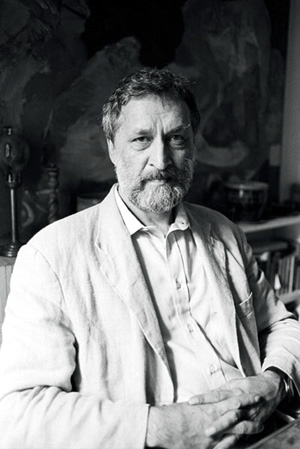 Mark Callanan
Mark Callanan is the author of
Scarecrow (2003), a critically-acclaimed first book of poems, and
Sea Legend (2010), winner of the bpNichol Chapbook Award. His poetry has appeared in several anthologies, including
Breathing Fire 2: Canada’s New Poets. He lives in St. John’s, Newfoundland with his wife and children.
Gift Horse (2011) is his most recent collection.
The following interview was conducted by e-mail.
Carmine Starnino: What's with all the mermaids in
Gift Horse?
 Mark Callanan
Mark Callanan: That obsession was prompted, at least in part, by Paul Muldoon’s collection
Mules, in which a merman is one of several hybrid characters. The title poem of Muldoon’s book begins with the line, “Should they not have the best of both worlds?” The answer is no: hybrids are border dwellers, creatures of a liminal space; mermaids may have both human and fish parts, but they can’t be wholly part of either world, so in a way, they don’t belong anywhere.
I like the idea of a creature that straddles two worlds because it’s metaphorically rich territory, in terms of my perception of Newfoundland, and in terms of my own divided sense of self. Newfoundland, to my mind, is stuck between its colonial past and its present status as a province of Canada; it’s part of Canada, but apart from Canada—a separation that owes its genesis to the still contentious issue of Confederation; it’s split between Old World mores and modern, North American sensibilities, between inherited English, Irish, Scottish and French oral traditions, and a much younger print culture; geographically, it’s positioned between Europe and North America; it’s bound to its traditional industry, the fishery, but also pulled by the allure of our rapidly growing oil and gas industry, as well as by the urge to package and sell itself as tourism product.
And I’m a creature divided as well. My mother grew up in a fishing community, pre-electricity; my father grew up here in the more modern capital. I grew up in St. John’s as well, in a suburban neighbourhood that, in many ways, could have been the playground of any North American kid. Why, then, should my sense of identity as a Newfoundlander be linked to notions of a life lived on the sea?
All this leads me to another aspect of that idea of internal division: I find it hard to take a stance sometimes, because I can easily see both sides of a given argument.
I guess I’m trying to tell you that I’m a mermaid.
CS: You seem pretty grounded in St. John's. Is there anywhere else you would consider moving?
 MC
MC: Sure. I lived in Leeds for a couple of years in my early twenties. I loved being there. Funny thing is, it reminded me of St. John’s—though, on the face of it, they have little in common. It seemed to me that they were both emerging from periods of economic depression. Leeds is a former industrial town remaking itself as a hub for the technology industry; St. John’s is a port town reaping the benefits of a sudden influx of oil money. My friends in Leeds told me it was a pretty depressing place to grow up, circa the 1980s; St. John’s, post-moratorium, was similarly afflicted. There was this pervasive sense of hopelessness that infected my generation. That’s changed now, of course. At the moment, St. John’s an exciting place to live. There’s a creative energy here I find infectious. There is still a lot about Newfoundland that I dislike: that we haven’t learned confidence in our means; we’re amazed by our successes, literary or otherwise, as if we haven’t earned them. Also, our reverence for tradition is both boon and bane. It’s important to know where you’ve come from, yes, but that can be crippling, too, if the past becomes a fixation, a fetish: a thing lauded for its own sake. That said, I love it here—more than that, I feel as if my fate is bound up in the fate of this island.
CS: Are there aspects of Newfoundland that can't be put in a poem? That you have to just live there to get?
MC: Nope. My ego tells me there’s nothing I couldn’t conjure. My ego lies, though. Often.
 He fucking loves it.
He fucking loves it.












